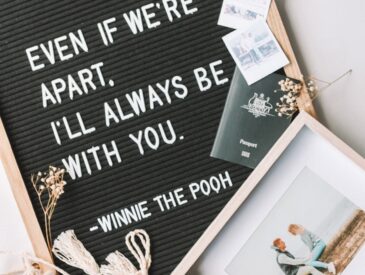Interracial partnerships have become more common and acceptable in a globalised society. These connections unite people from various cultural origins, promoting diversity and strengthening the bonds that bind society together. But managing the specifics of cultural differences calls for mutual respect, understanding, and sensitivity from both parties. To promote harmony and respect for one another, we examine the dos and don’ts of cultural sensitivity in interracial relationships in this blog article.
Welcome Diversity:
Honour the distinctive qualities of one another’s cultures. Seize the chance to become familiar with the traditions, practices, and beliefs of your spouse. Take part in culturally immersive activities with each other, including cooking new foods, going to festivals, or taking a language class. These will give you an intimate understanding of each other’s cultures.
Communicate Openly:
Communication is key to overcoming cultural misunderstandings. Be open and honest with your partner about your cultural perspectives, values, and expectations. Encourage dialogue and actively listen to each other’s viewpoints without judgment. Discuss how your cultural differences may impact your relationship and explore ways to navigate potential challenges together. Effective communication builds trust and strengthens the connection between partners.
Respect Each Other’s Traditions:
Show respect for your partner’s cultural traditions and practices, even if they differ from your own. Participate in important cultural ceremonies or rituals with an open mind and willingness to learn. Respect boundaries and be mindful of cultural sensitivities, especially when interacting with your partner’s family members or community. By demonstrating respect for each other’s traditions, you create a supportive and inclusive environment in your relationship.
Educate Yourself:
Take the initiative to educate yourself about the historical and social contexts of your partner’s culture. Read books, watch documentaries, or engage in cultural exchange programs to gain a deeper understanding of their background. Educating yourself demonstrates your commitment to learning and appreciating the complexities of your partner’s heritage. It also enables you to navigate cultural differences more effectively and fosters mutual respect in your relationship.
Address Biases and Stereotypes:
Be mindful of your own biases and stereotypes, and challenge them with empathy and understanding. Recognize that cultural differences do not imply superiority or inferiority; they simply reflect the diversity of human experiences. Avoid making assumptions based on stereotypes and instead approach each situation with an open mind and a willingness to learn. By confronting biases together, you create a more inclusive and harmonious relationship.

Don’ts:
Ignore Cultural Differences:
Avoid dismissing or trivializing your partner’s cultural background. Ignoring cultural differences can lead to misunderstandings, resentment, and conflicts in your relationship. Acknowledge and embrace the diversity within your relationship, recognizing that it enriches your shared experiences and strengthens your bond as a couple.
Impose Your Cultural Norms:
Refrain from imposing your cultural norms or expectations on your partner. Respect their autonomy and individuality, allowing them to express their cultural identity freely. Avoid pressuring your partner to conform to your cultural standards and instead appreciate the richness of their heritage. By embracing cultural diversity, you create a supportive and inclusive space where both partners feel valued and accepted.
Stereotype or Generalize:
Steer clear of stereotyping or generalizing people based on their cultural background. Each individual is unique, and cultural stereotypes do not accurately reflect the complexities of human identity. Avoid making assumptions about your partner or their culture and instead approach them with curiosity and respect. By treating each other as individuals, you foster a deeper connection and mutual understanding in your relationship.
Disregard Family Dynamics:
Recognize the significance of family dynamics in shaping your partner’s cultural identity. Be respectful and considerate when interacting with your partner’s family members, honouring their traditions and values. Avoid criticizing or undermining their cultural practices, even if they differ from your own. By showing respect for your partner’s family, you strengthen your relationship and build trust within their community.
Neglect Self-Reflection:
Take time to reflect on your own cultural biases, prejudices, and privileges. Examine how your cultural background influences your perspectives and behaviours in your relationship. Challenge yourself to confront internalized prejudices and strive to be more culturally aware and sensitive. By engaging in self-reflection, you cultivate a deeper understanding of yourself and your partner, fostering a more inclusive and harmonious relationship.
Cultural sensitivity is essential for fostering harmony and mutual respect in interracial relationships. By embracing diversity, communicating openly, and respecting each other’s traditions, partners can navigate cultural differences with empathy and understanding. It’s important to challenge biases, avoid stereotypes, and prioritize self-reflection to create an inclusive and supportive environment for both partners. Ultimately, by following these dos and don’ts, couples can build a stronger, more resilient relationship that celebrates the richness of cultural diversity.




